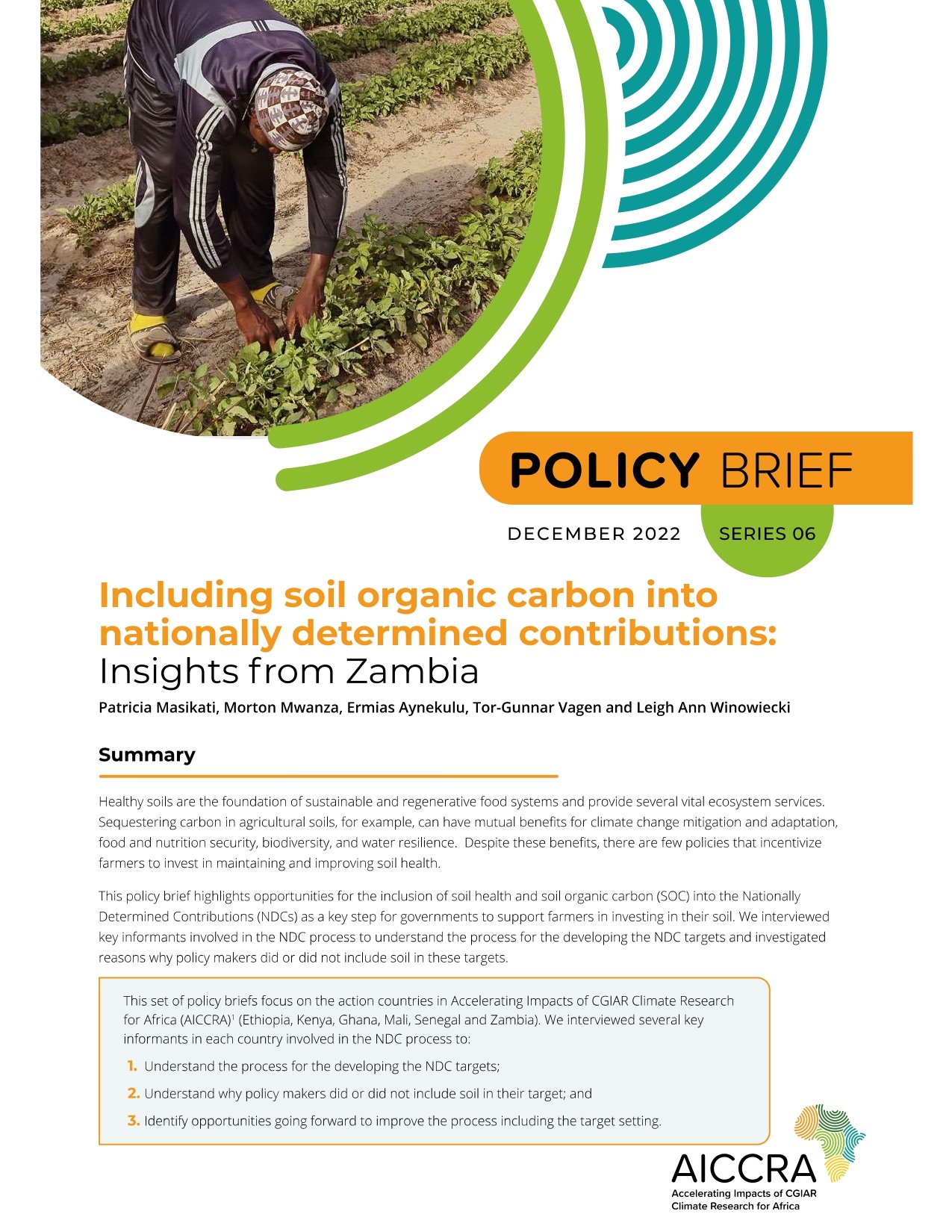Including soil organic carbon into nationally determined contributions: Insights from Zambia
Abstract
Healthy soils are the foundation of sustainable and regenerative food systems and provide several vital ecosystem services. Sequestering carbon in agricultural soils, for example, can have mutual benefits for climate change mitigation and adaptation, food and nutrition security, biodiversity, and water resilience. Despite these benefits, there are few policies that incentivize farmers to invest in maintaining and improving soil health. This policy brief highlights opportunities for the inclusion of soil health and soil organic carbon (SOC) into the Nationally Determined Contributions (NDCs) as a key step for governments to support farmers in investing in their soil. We interviewed key informants involved in the NDC process to understand the process for the developing the NDC targets and investigated reasons why policy makers did or did not include soil in these targets.

